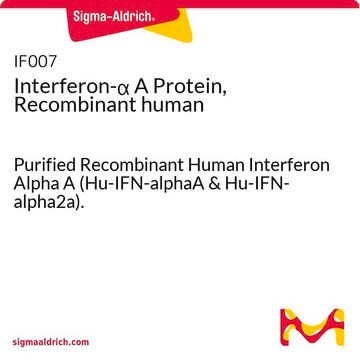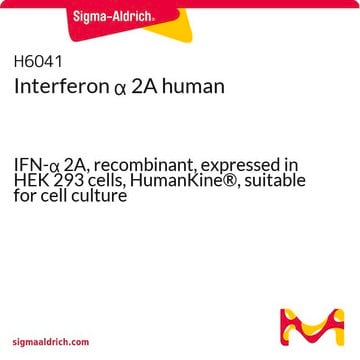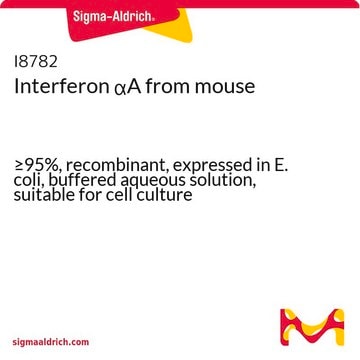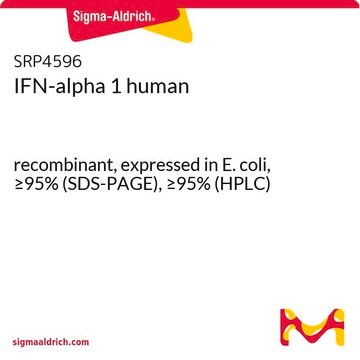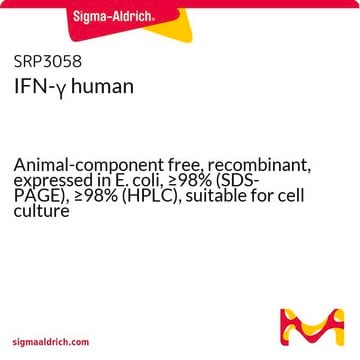I4401
Interferon-αA/D human
≥95%, recombinant, expressed in E. coli, buffered aqueous solution, suitable for cell culture
Synonyme(s) :
IFN-αA/D
About This Item
Produits recommandés
Source biologique
human
Niveau de qualité
Produit recombinant
expressed in E. coli
Pureté
≥95%
Forme
buffered aqueous solution
Poids mol.
19 kDa
Conditionnement
pkg of 100K units
Technique(s)
cell culture | mammalian: suitable
Impuretés
endotoxin, tested
Couleur
colorless
Numéro d'accès UniProt
Conditions d'expédition
dry ice
Température de stockage
−70°C
Informations sur le gène
human ... IFNA2(3440)
Application
- for identification of coronavirus replicase inhibitors
- in combination with ACH-806 [1-(4-pentyloxy-3-trifluoromethylphenyl)-3-(pyridine-3-carbonyl)thiourea] to study the effect on hepatitis C virus (HCV) replication
- in combination with vitamin D to check reduction in HCV protein production in cell culture
Actions biochimiques/physiologiques
Forme physique
Remarque sur l'analyse
Code de la classe de stockage
10 - Combustible liquids
Classe de danger pour l'eau (WGK)
WGK 3
Point d'éclair (°F)
Not applicable
Point d'éclair (°C)
Not applicable
Équipement de protection individuelle
Eyeshields, Gloves
Certificats d'analyse (COA)
Recherchez un Certificats d'analyse (COA) en saisissant le numéro de lot du produit. Les numéros de lot figurent sur l'étiquette du produit après les mots "Lot" ou "Batch".
Déjà en possession de ce produit ?
Retrouvez la documentation relative aux produits que vous avez récemment achetés dans la Bibliothèque de documents.
Les clients ont également consulté
Notre équipe de scientifiques dispose d'une expérience dans tous les secteurs de la recherche, notamment en sciences de la vie, science des matériaux, synthèse chimique, chromatographie, analyse et dans de nombreux autres domaines..
Contacter notre Service technique
